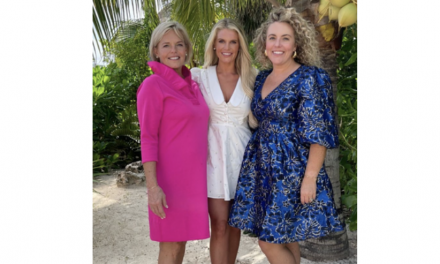
Are you wondering what mindset has to do with how you age? Isn’t healthy aging more about eating well and getting exercise? Well yes, these are important. So is having a sense of purpose and enjoying good relationships/community.
Add your mindset to the list. Much of the recent research on healthy aging cites some aspect of mindset as a significant contributor to aging well. One study of optimism found over a 30-year period that persons with optimism decreased their risk of early death by about 20%.
Becca Levy’s book, Breaking the Age Code (2022), is all about how beliefs about aging influence health span and age span. As a reminder, Dr. Levy found that research participants with positive age beliefs lived on average 7.5 years longer than those with more negative beliefs.
Don’t you think there is value in taking a moment to reflect on your mindset?
What Is Mindset?
According to Merriam-Webster, mindset is your mental attitude or inclination. It is really the beliefs about the world that shape how you think, feel and behave. Clearly mindset is a key player in how you experience life.
Key components of a positive mindset include:
Optimism
This, of course, is looking for the positive and believing that events will turn out for the best, no matter how it looks at the moment. Optimism also is seeing the good before the not-so-good.
Gratitude
We all know the benefits of nurturing our gratitude. We read about keeping a gratitude journal and the practice of listing several things you are grateful for when going to sleep and waking as methods for living a peaceful and fulfilling life.
Self-Confidence
Do you trust yourself? This is what allows us to say “Yes” to opportunities, learning, growth and adventure.
Sensing You Are Part of Something Bigger Than Yourself
You matter. For some, this is religious or spiritual. For others, it may be a felt sense that does not need a structure. It is the feeling that makes a difference in your experience of life.
How Can You Improve Your Mindset?
Take Note of Your Propensity to Be Optimistic
Notice how you manage negative events. Do you dwell on or magnify the negative aspects of a situation, or do you figure out how to make the best of it or even improve the situation? Sometimes, it simply is noticing the possibilities rather than focusing on the downside.
When you look at your garden, do you see the work to be done or the beauty of what is growing? If you need to make a long drive to see a friend, do you bemoan the effort and time or do you find a way to make it an adventure? When you observe people, do you see the beauty of our humanity or cast judgment on what you see as negative?
Optimism is what allows us to accept what can’t be changed and find a way to adapt that allows life to move forward. It provides for resilience. As one of my mentors taught, if one pair of shoes does not fit, that does not mean that you are not meant to wear shoes.
A recent client had to return from retirement because her business began to unravel right at the time she intended to sell it. Now, she is turning it around so her legacy business will carry forward the values that matter to her. Next year, she will retire with pride and a bit of a nest egg.
Are You Naturally Grateful?
Do you have a gratitude practice? If not, then start with something easy. Once a day, notice your home or family with gratitude. Or when you go to sleep, think of three events or features from the day that you are grateful for. Keep it up and gratitude can become a natural part of your life. It feels good.
Pay Attention to Your Self-Confidence
If your self-confidence is shaken, remember that happens to everyone. Step back to gain perspective. Is the issue really about you? If you were to look at the situation 5 years from now, what would you see? See if you can find the golden nugget of learning from the experience. That way, you can grow from it rather than have your confidence shaken.
Notice if you are comparing yourself to others. Especially as we get older, it can be tempting to compare ourselves to younger people or to ourselves at a younger age. If you have fallen short of a personal goal, check if the goal was reasonable in the first place!
Check your self-talk. It will tell you a lot about your mindset. If needed, write down the aspects of yourself that you appreciate and read it a few times a day. Remind yourself that you are worthy of all good things and deserve them. The gratitude practices help shape your self-talk too.
Know Where You Feel Connected with Life
For some people, it is in their religious rituals and community. For others, like me, it is in nature. Prayer, meditation, simply listening to nature, gardening, even cooking can elicit the feeling of being a part of a larger life. My friend feels it in her choral arts group. Where do you find it in your life?
Putting It All Together
Living with constructive views about aging takes all the components just discussed. Belief in positive aging requires optimism, adaptability, resilience, gratitude, self-confidence and sensing you are part of something bigger.
When you embrace aging as a profound and beautiful journey, even when there are a few challenges along the way, then you have stepped away from any internalized ageism. This opens the door for you to feel more at peace and able to enjoy your years. The bonus is your years may be longer and healthier… as well as being happier.
On a final note, remember to laugh heartily and often. Being positive is contagious; others enjoy being with you. Plus, you will draw other positive people to your circle of friends.
If you want support as you find your way into a healthier mindset, visit me at https://www.becomingyouafter60.com/yes-to-life
Let’s Have a Conversation:
What approaches do you take to nourish your positive mindset? How have you learned to turn around any mindset habits that did not work for you? Do you have some habits now you would like to change?





